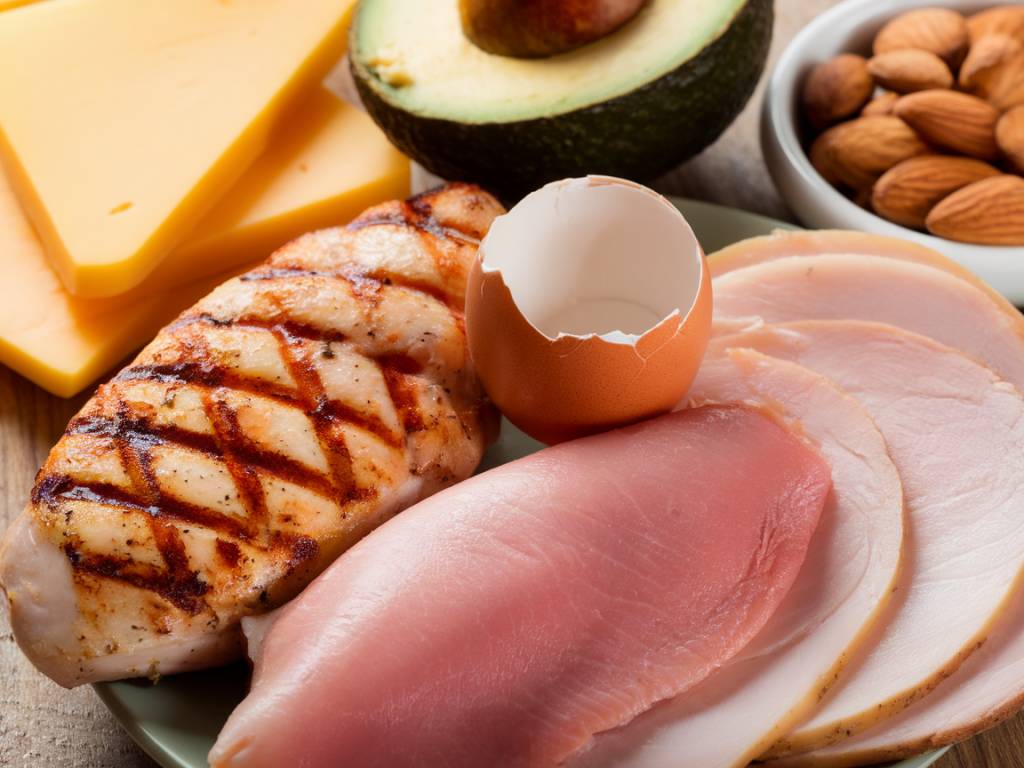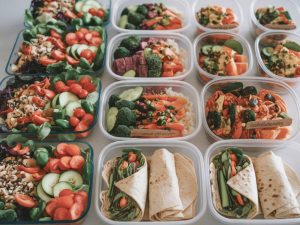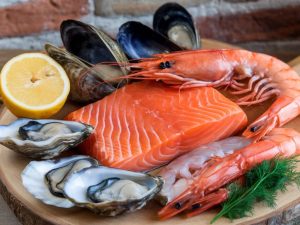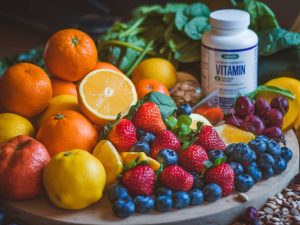The importance of protein intake for both athletes and non-athletes

The importance of protein intake for both athletes and non-athletes
The Power of Protein: Why It Matters for Everyone
Protein often gets all the attention in the athletic world, and for good reason. It’s a key macronutrient that fuels muscle growth, aids in recovery, and keeps our bodies functioning optimally. But here’s the kicker: protein isn’t just for athletes. Whether you’re crushing weights at the gym, running marathons, or simply managing a busy lifestyle, protein is critical for your overall health. Curious why? Let’s dive deeper.
What Does Protein Actually Do?
Think of protein as the building blocks your body can’t live without. Muscles, skin, hormones, enzymes–they all rely on protein for construction and repair. Without enough of it, your body struggles to rebuild and maintain itself. And here’s something fascinating: protein isn’t just about building muscles. It’s also essential for a strong immune system, steady energy levels, and even clearer skin. Sounds like a total package, right?
Protein 101: How Much Do You Really Need?
Let’s cut to the chase: the amount of protein you need depends on factors like age, activity level, and overall health. The Recommended Dietary Allowance (RDA) suggests about 0.8 grams of protein per kilogram of body weight for sedentary adults. But if you’re active or an athlete, your needs can increase significantly, to about 1.2–2.0 grams of protein per kilogram.
Not sure how to calculate that? Say you weigh 70 kilograms (around 154 lbs), and you’re moderately active. You’d benefit from around 84–140 grams of protein per day. And no, that doesn’t mean eating chicken breasts all day (although they are a great source!). A balanced diet with a variety of protein-rich foods is key.
Why Protein is a Game-Changer for Athletes
For athletes, protein does more than maintain health. It’s essential for performance and recovery. During exercise, especially high-intensity or strength-focused workouts, muscle fibers experience microscopic tears. Protein swoops in like a superhero, repairing and strengthening your muscles so you’re ready for the next challenge.
But it’s not just about muscle repair. Protein can also help reduce muscle soreness, improve endurance, and support energy production. Ever heard of that dreaded “plateau”? Increasing your protein intake might just keep you progressing in your fitness goals. Athletes often prioritize protein timing, consuming it shortly after a workout to maximize muscle repair and growth. A post-workout protein smoothie, anyone?
Wait, What About Non-Athletes?
Here’s where it gets interesting: non-athletes can reap massive benefits from protein, too. Whether you’re working a desk job, chasing after kids, or spending your weekends binge-watching Netflix (no judgment!), your body still needs protein to function at its best.
Protein can help maintain muscle mass as you age, which is especially important for preventing age-related muscle loss, or sarcopenia. Beyond that, it can help manage weight by increasing feelings of fullness. Ever wonder why a high-carb breakfast leaves you starving by 10 a.m.? Protein to the rescue. Swapping out that morning pastry for eggs or Greek yogurt can keep you full and energized for hours.
Plant-Based vs. Animal-Based Protein: What’s the Difference?
Now, here’s a hot topic in the nutrition world: Should you stick to animal-based proteins like chicken, fish, and eggs, or go plant-based with beans, lentils, and tofu? The answer largely depends on your personal lifestyle and dietary preferences.
Animal proteins are considered « complete, » meaning they contain all nine essential amino acids your body needs. But don’t sleep on plant-based options! While many plant proteins are “incomplete,” you can easily combine them to make a complete profile. Think beans and rice or peanut butter on whole-grain bread. Plus, plant-based proteins often come with added benefits like fiber and antioxidants, which are great for overall health.
Practical Tips to Boost Your Protein Intake
Worried you’re not getting enough protein in your diet? Don’t panic. Here are some easy ways to increase your intake without feeling overwhelmed:
- Add a scoop of protein powder to your morning smoothie.
- Snack smart with high-protein options like nuts, seeds, or Greek yogurt.
- Choose whole grains like quinoa, which pack in more protein than refined options.
- Swap empty carbs for protein-rich alternatives, like substituting pasta with lentil or chickpea noodles.
- Prep meals with a focus on your protein source—baked salmon or tofu stir-fry, anyone?
Breaking Myths: Can Too Much Protein Be Harmful?
Ah, the age-old question: Can you overdo it on protein? The short answer is yes, but it’s rare and generally not something the average person needs to worry about. Extremely high protein intake over long periods could potentially strain the kidneys in individuals with pre-existing kidney conditions. However, for most healthy people, even athletes, the benefits of meeting (and sometimes exceeding) their protein needs far outweigh the risks.
The key is balance. Don’t neglect carbs and fats, as they’re equally important for a well-rounded diet. Think of your meals as a team effort, where each nutrient plays an important role in your overall performance and health.
The Takeaway
Whether you’re an athlete striving for peak performance or a non-athlete simply trying to feel your best, protein is a cornerstone of good health. It fuels your body, keeps your muscles strong, and helps you tackle whatever life throws your way. So next time you’re meal planning, don’t just think about taste—think about what’s going to power your body and support your goals. By prioritizing protein and making informed choices, you’re setting yourself up for a healthier, stronger future. Who wouldn’t want that?






